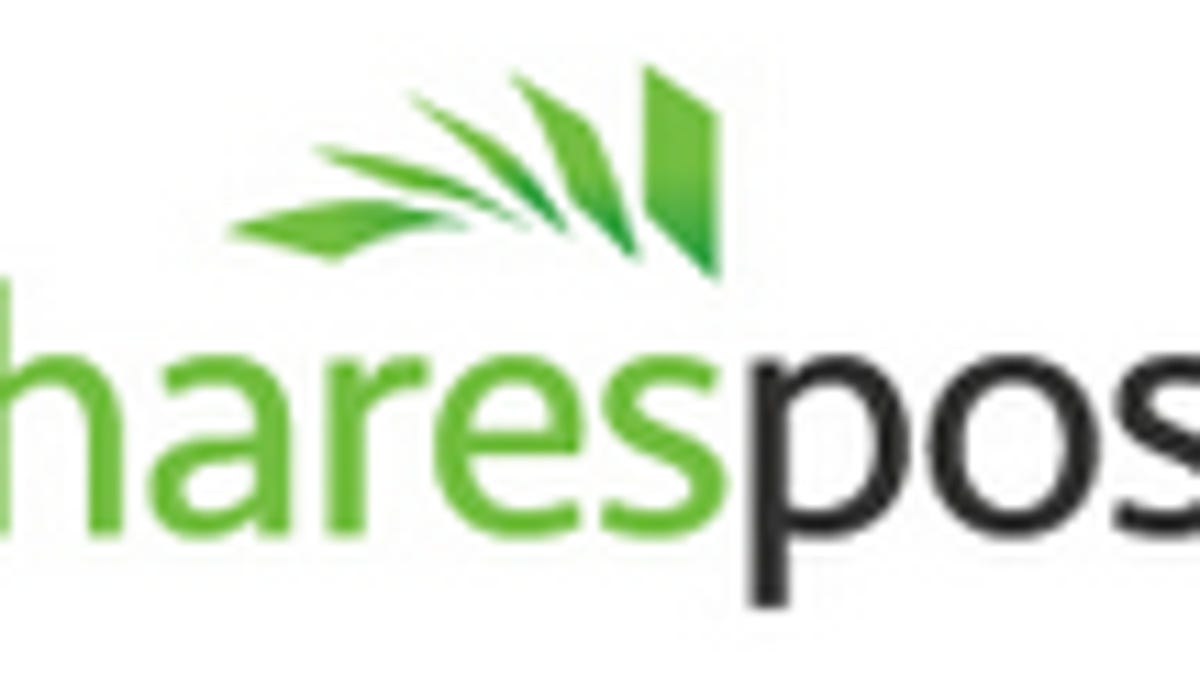Sharespost lets you buy the un-buyable
Thought private company stocks were un-buyable and un-sellable? See this new market.

Want to own a piece of Tesla Motors? Facebook? LinkedIn? Unless you're a founder, employee, or a funding source for these companies, you're out of luck. That's what separates "public" companies from private: anyone can buy a piece of a public company on an open exchange. There are no wide-open exchanges for private company shares.
But there is now, at least to a degree. Sharespost is a marketplace where people who own pre-public shares can connect with investors who want that stock. Since these private companies also don't have open, audited books where potential investors can study up on the companies, Sharespost collects analysts' research on the companies in its market to help buyers and sellers agree on a value for shares being transacted.
The added values of the Sharespost marketplace, according to CEO Greg Brogger, are several. First, it connects buyers and sellers. Second, it helps with "price discovery," as noted above. Third, it facilitates the transactions by handling the paperwork and helping buyers and sellers work through contingencies attached to employee stock awards. And fourth, through an arrangement with US Bank, it processes and clears all the money.
Sharespost is not for the casual investor who wants to nab a few shares of Facebook for fun. Each transaction incurs a $2,500 fee (for both buyer and seller) from US Bank. And you must be an "accredited and sophisticated buyer" under SEC Regulation D, which limits the universe of buyers to people with substantial invested assets and experience. There is no such limitation for sellers. So if you're sitting on a few thousand shares of beached stock at a biggish private company, and baby needs a few thousand new pairs of shoes, Sharespost might be able to help you out.
Bizzarely, Sharespost does not collect a piece of these transactions. Brogger doesn't want to make his company a brokerage. He doesn't want it to be seen as profiting from individual transactions on his site. Instead, he charges buyers and sellers a $34 a month fee for using Sharespost. "There are a lots of transactions happening now in coffee shops," Brogger says, and with his model, he doesn't care if that continues or if the sales are closed through the US Bank clearing system. Although with the amount of money per transaction involved here, I don't see why he doesn't go for a small bit of the action.
Private for a reason
I went into my meeting for Brogger with arguments lined up against the very idea of this service. Private companies don't have reliable information about them, I said. Naive employees will get taken. Brogger's counter was two-fold. First, he said, the analyst reports help people agree on a fair value. Second, nobody has to trade if they don't want to. It's a fair market.
I said that employees in private companies are awarded shares they can't sell independently for a reason: to incentivize them to move the company toward a liquidation event, so their shares become worth something. To this, Brogger says that this incentive is now largely moot, since the IPO and M&A markets are effectively shut down. People still need to buy houses and cars, and send kids to college. This market makes people's shares somewhat liquid.
Brogger also told me that this market could help venture funds wind up their businesses. 250 funds were started in 1999, he told me, and most are 10-year funds. They need to do something with their shares, and this market makes it possible to more easily close out at least some of their positions.
It's worth noting that only vested shares in pre-public companies can be traded. You can't go to work for Digg today and immediately sell your unvested shares for cash. Also, Sharespost will only transact shares that have been held for a year, and only at companies with a valuation more than $100 million. Brogger doesn't want people buying to flip, or manipulating smaller companies.
The value so far
To date, Sharespost, which launched last week, has executed one transaction: a $25,000 sale of Tesla shares. See more at the San Jose Mercury News.
There's more value here for you an me, though, even if we don't have private company shares or don't want to buy some. The research on the site is open even to nonpaying users. As TechCrunch points out, this is valuable and interesting data, and gives a pretty good insight into the realistic value of many private tech companies.
While I still fear that people could get taken in this market due the relative lack of oversight and control compared with public markets, it's also true that there are many private company employees forced to hold on to shares in their companies that may be valuable to somebody today but worthless tomorrow--these companies could fold, after all, leaving their employee shareholders with nothing.
Company execs may not want their employees to offload their shares, but they might also want to give them some rewards for their hard work before the company makes its shares more clearly valuable might in fact embrace the Sharespost concept. They could do this by contracting with Sharespost to administer a program that allows Sharespost to transact specified percentages of employees' shares. Or at the very least, the existence of Sharespost might encourage private companies to write some passages into employee contracts specifying what employees may and may not do with all or part of their pre-liquid stocks. The very concept of a market for pre-public shares could, in other words, make them even more valuable as employee incentives for cash-strapped start-ups.
See also: Secondmarket, NYPPEX.

